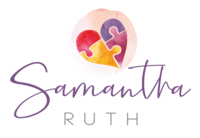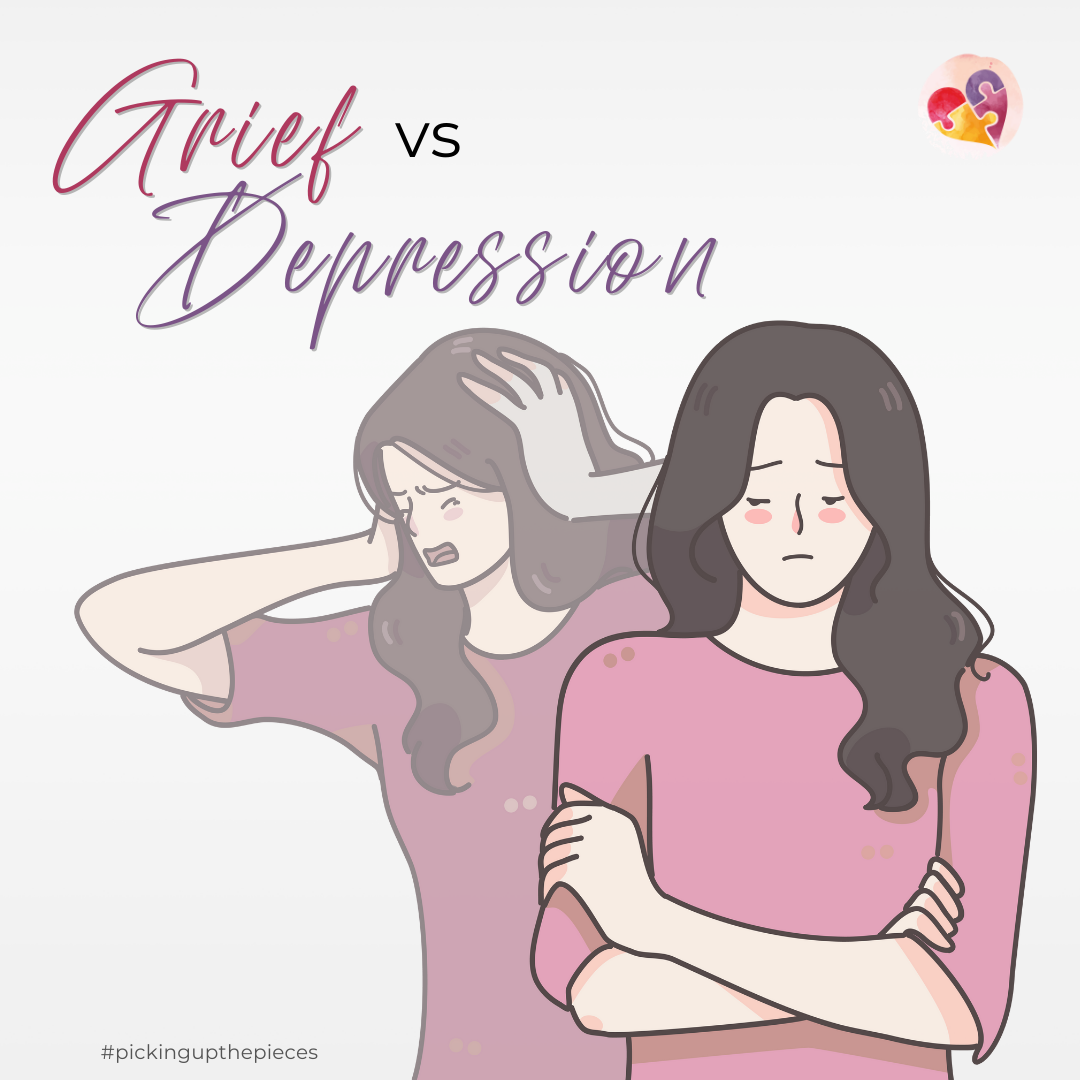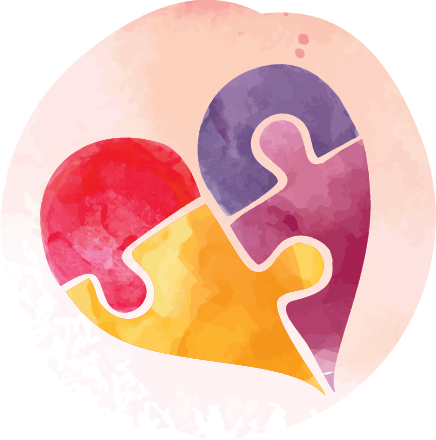Press











ABOUT Sam
SERVICES
Team Ruthless
EVENTS
GRIEFHAB™
PODCAST
RETREATS
shop
HEALING TOGETHER THROUGH THE HOLIDAYS - MAIN EVENT
HEALING TOGETHER - FOR A CAUSE: VIRTUALLY
HEALING TOGETHER - FOR A CAUSE: PILATES IN THE PARK - MICHIGAN
HEALING TOGETHER - FOR A CAUSE: VISIBLE - COLORADO
September 6-7
Jimtember Virtual Jubilee
blog
December 2nd - 8th / Metro Detroit AND VIRTUALLY
August 27th & 28th
August 30-31st
rUTHLESS IN THE ROCKIES
TEAM RUTHLESS
THE CONFIDENCE CONFERENCE
mOBILE rECOVERY dAY
Next event: September 10-23rd, Colorado
October 5-6th -
Virtual Event
September 30th, Castle Rock, Colorado
7 Groups Every week Plus Every Holiday
HEALING TOGETHER - FOR A CAUSE: Ride & ROAR - DALLAS
October 11 -12th
Stay Tuned!
FACES OF GRIEF
JOIN US
Grief vs Depression
January 27, 2022


As a psychologist, grief expert and widow, I get a lot of questions about grief and depression – both from individuals dealing with loss, as well as friends and family members with loved ones dealing with a loss.
Common questions include:
“Is this more of a reaction to grief, or is this crossing over into depression?”
“How can I show up for a loved one living with grief?”
“How do I know if I am clinically depressed?”
This blog will help you differentiate between grief and depression and help you know exactly what to do when you’re seeing signs or symptoms, whether it’s for yourself, for a friend, or for a loved one.
CAUSES
GRIEF
Grief is a reaction to an identifiable loss in your life. Any of the signs or symptoms that you are experiencing can be linked to something external that you’ve just experienced.
DEPRESSION
In comparison, depression may or may not be connected to a loss. In fact, there might be nothing specific that has caused this particular set of symptoms.
FOCUS
GRIEF
When you are dealing with grief, your focus is on the loss you have experienced and the person (job, pet, etc) you are missing. It’s external.
DEPRESSION
When you are feeling depressed, your focus is on yourself – how you’re feeling, what you’re thinking. It’s internal.
RELATIONSHIPS
GRIEF
While it is normal to want to skip certain social situations to allow yourself the space to heal and breathe, overall you don’t feel a need to isolate yourself from everyone in your life. Rather, it’s comforting to be around friends and loved ones.
DEPRESSION
Isolating from friends and family, withdrawing, and shutting down are common when living with clinical depression. It isn’t at all comforting to be around others and can often make things worse.
SYMPTOMS
The symptoms for grief and depression are quite similar, which is why there is a lot of confusion around which one is which. The biggest differentiator is that grief affects everyone differently, and the symptoms you experience are fluid, whereas depression can be quite all-consuming and concrete.
GRIEF
When grieving, your emotions will fluctuate. You will still be able to experience positive emotions, such as pleasure, joy, and gratitude… even if these feelings are less frequent.
DEPRESSION
In comparison, depression is the inability to experience any positive emotions at all. People with depression tend to report feeling stuck as well as a pervasive lack of emotions.
THOUGHTS
GRIEF
“I just want to be with him again” is a common thought for people who have experienced a traumatic loss. It’s a longing to be reunited and to reconnect with the person they have lost. It is not an active thought or desire to harm oneself.
DEPRESSION
In comparison depression is not about reconnecting with someone or something. It’s about wanting to disappear and escape the suffocation of feelings, and this can result in thoughts or actions of self harm.
TREATMENT
GRIEF
It is never a bad idea to find support. Treatment such as medication or therapy might be right for you, but it isn’t required. Depression, on the other hand, requires help from a medical professional.
If you feel like your grief is taking over your life and interfering with your daily functioning, please reach out to a mental health professional to find a treatment plan that works for you.
The morning after my husband passed away and I was living with an all-consuming grief, I went back on my medication for anxiety and depression. I also got into therapy – twice a week. I knew it was not going to be an easy time and I wanted as much support as possible to get through it.
DEPRESSION
Clinical depression is a mental health illness that urgently needs treatment. Treatment plans differ for each person and it’s important to reach out to a mental health professional to find the right plan for you. This might even include experimenting with a few different treatment plans until you find the right one.
Tune in to The Be Ruthless Show to hear more about grief vs depression.
Did you find this blog valuable?
Please share this blog with someone who you think will benefit from understanding the difference between grief and depression. These are important conversations to share and the more we speak openly about grief, mental health, and mental illness – the better the world will be.
Leave a Reply Cancel reply
120 E. Front St. Loft 2 Traverse City MI 49684 &
77 Monroe Center St Ste 600 Grand Rapids MI 49503
phone : +1 (231)707-0707


Donate TO GRIEFHAB™
Donate today to help make our events and services free for everyone.
You can also donate directly to support a specific client in need.
four
three
info & Investment
two
THE FOUNDER
one
fIVE
GRAB A COPY OF MY
BOOKS & MERCHANDISE
four
three
info & Investment
two
THE FOUNDER
one


fIVE
GRAB A COPY OF MY
BOOKS & MERCHANDISE










HEALING TOGETHER EVENT
EVENTS
four
three
info & Investment
two
THE FOUNDER
one
fIVE
GRAB A COPY OF MY
BOOKS & MERCHANDISE
four
three
info & Investment
two
THE FOUNDER
one





fIVE
GRAB A COPY OF MY
BOOKS & MERCHANDISE










FACEBOOK FAMILY
GRIEFHAB™ SERVICES
FACES OF GRIEF
Our Press Features
THE BE RUTHLESS SHOW
two
three
Recent Articles
one





Coming in September! Stay Tuned.
December 2nd -8th / Metro Detroit AND VIRTUALLY
August 25th
August 30-31st
October 11 -12th
Stay Tuned!










four
three
info & Investment
two
THE FOUNDER
one





fIVE
GRAB A COPY OF MY
BOOKS & MERCHANDISE
four
three
info & Investment
two
THE FOUNDER
one





fIVE
GRAB A COPY OF MY
BOOKS & MERCHANDISE









